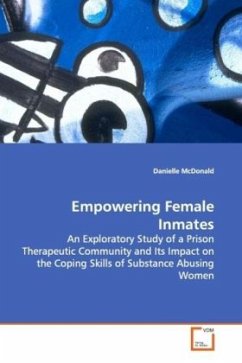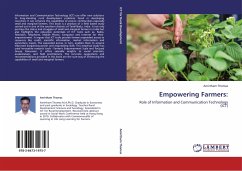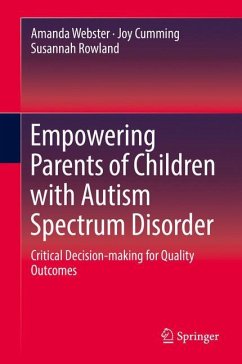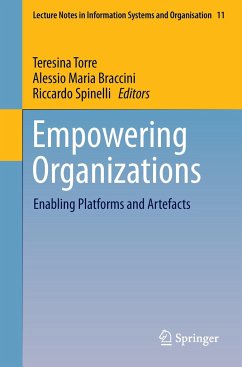
Empowering Partnerships
The development of a model of empowering partnerships in the context of devolution
Versandkostenfrei!
Versandfertig in 6-10 Tagen
51,99 €
inkl. MwSt.

PAYBACK Punkte
26 °P sammeln!
There is a trend in Western nations to move people with developmental disabilities out of institutions and into community based accommodation. Deinstitutionalisation impacts not only on the person with a disability but on their significant others and also on the organisation providing them with support. This book reports on a qualitative study with significant others involved in the deinstutionalisation of their son or daughter. The study revealed that deinstitutionalisation can be a disempowering process. Deinstitutionalisation may rekindle feelings of guilt regarding the initial placement of...
There is a trend in Western nations to move people with developmental disabilities out of institutions and into community based accommodation. Deinstitutionalisation impacts not only on the person with a disability but on their significant others and also on the organisation providing them with support. This book reports on a qualitative study with significant others involved in the deinstutionalisation of their son or daughter. The study revealed that deinstitutionalisation can be a disempowering process. Deinstitutionalisation may rekindle feelings of guilt regarding the initial placement of their child and when this is coupled with the experience of negative changes in their own lives, it may result in feelings of loss of control, low self efficacy, and a reduced resilience to manage the change. A model of empowering partnerships is presented which incorporates five principles: respect, communication, shared values, common goals, and individualised approaches. Application of these principles may result in empowering partnerships between the significant others, the person with the disability and the organisation/s supporting them.












